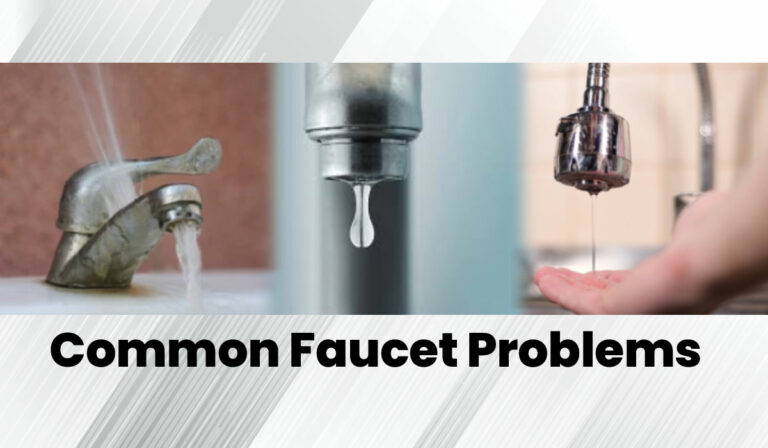How Much Is Shower Installation
You can expect to pay anywhere from $600 to $6,000 for shower installation, depending on factors like the type of shower, materials, and plumbing complexity. Prefabricated units cost less, while custom-tiled or steam showers run higher. Labor rates also vary by location, with city areas generally pricier. Remember to budget for permits and possible demolition. If you keep exploring, you’ll uncover ways to manage costs and find the best options for your project.
Factors Affecting Shower Installation Costs
When you’re planning to install a new shower, several factors will influence the overall cost. You’ll want to consider the complexity of the plumbing work required—if your existing setup needs major adjustments, that’ll raise the price.
The size and design of the shower also matter; larger or custom units typically cost more. Materials play a big role, too, from tiles to fixtures.
Labor costs vary depending on your location and the contractor’s experience, so shop around. Don’t forget about permits and inspections, which might be necessary depending on local regulations.
Finally, accessibility matters—if your bathroom is hard to reach or requires demolition, expect higher charges.
Knowing these factors helps you budget more accurately and avoid surprises.
Cost Breakdown for Different Types of Showers
Understanding the factors that affect shower installation costs sets the stage for comparing prices across different types of showers.
If you choose a basic prefabricated shower unit, expect to pay between $600 and $1,200 for materials.
On the other hand, a custom-tiled shower can cost anywhere from $1,500 to $5,000 or more, depending on tile quality and complexity.
Walk-in showers with frameless glass doors generally run between $2,000 and $6,000, combining materials and installation.
For a steam shower, prices often start around $4,000 and can escalate significantly based on features.
Keep in mind, these figures reflect material costs primarily; labor and additional plumbing needs can affect the total.
Knowing these ranges helps you budget accurately and choose the shower type that fits your style and wallet.
Labor Expenses and Regional Price Variations
Since labor makes up a significant portion of shower installation costs, you’ll want to factor in how rates vary across regions. In metropolitan areas, labor tends to be pricier due to higher living costs and demand for skilled workers.
Conversely, rural locations often offer lower rates but might have fewer qualified installers available. Keep in mind, specialized work like custom tile showers or complex plumbing can increase labor time and expenses regardless of region.
When you’re budgeting, check local contractor rates and ask for detailed quotes to understand labor costs clearly. This way, you avoid surprises and can compare prices effectively.
Additional Expenses to Consider
What else should you budget for beyond labor and basic materials? Don’t forget permits—some areas require them for plumbing work, which adds fees and time. Also, consider demolition costs if you need to remove an old shower or tiles.
Upgrading plumbing or electrical systems can increase expenses, especially in older homes. You might want to invest in waterproofing to prevent future damage, adding to the total. Disposal fees for debris and old fixtures can sneak into your bill.
Finally, if your project requires custom features like niche shelves or specialty tile patterns, expect higher costs. Planning for these extras upfront helps you avoid surprises and keeps your shower installation project on track financially.
Tips for Saving Money on Shower Installation
Even if you want a high-quality shower, you can find ways to cut costs without sacrificing durability or style. Start by choosing materials that offer good value, like fiberglass or acrylic, instead of pricier tiles or stone.
Consider installing a prefabricated shower unit to save on labor and material costs. Do some of the prep work yourself, such as demolition or painting, to reduce installation time and fees.
Shop around for multiple quotes from licensed contractors to ensure you get a competitive price. Also, schedule your project during off-peak seasons when contractors might offer discounts.
Finally, avoid making major plumbing changes, as relocating pipes significantly increases costs. With these tips, you can enjoy a new shower without breaking your budget.
Frequently Asked Questions
How Long Does a Typical Shower Installation Take?
A typical shower installation takes about one to three days, depending on complexity and plumbing adjustments. You’ll want to plan for a couple of days to ensure everything’s done right and your new shower works perfectly.
Do I Need a Permit for Shower Installation?
Yes, you usually need a permit for shower installation, especially if it involves plumbing changes. Check with your local building department to avoid fines and ensure the work meets safety codes before you start.
Can I Install a Shower Myself Safely?
Yes, you can install a shower yourself safely if you follow instructions carefully, use proper tools, and understand plumbing basics. Just be sure to turn off water, check for leaks, and consider local codes before starting.
What Maintenance Does a New Shower Require?
You’ll need to clean the shower regularly, check for leaks, and maintain grout and caulk to prevent mold. Also, ensure drains stay clear and fixtures are tight to keep everything working smoothly and looking fresh.
Are There Eco-Friendly Shower Installation Options?
Yes, you can choose eco-friendly shower installation options like low-flow showerheads, water-saving valves, and recycled materials. These choices help conserve water and energy, reducing your environmental impact while keeping your bathroom stylish and efficient.
Conclusion
When you’re planning a shower installation, keep in mind that costs vary based on shower type, labor rates, and extra expenses like plumbing or permits. By understanding these factors, you can budget smarter and avoid surprises. Don’t forget to compare quotes and consider DIY options if you’re comfortable. With a bit of research and planning, you’ll get a great shower installed without breaking the bank. Stay savvy, and enjoy your new bathroom upgrade!

